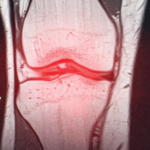CHICAGO—“Why do so many drugs fail in clinical trials?” asked Michael Brenner, MD, chief of rheumatology, immunology and allergy at Brigham and Women’s Hospital in Boston. This question, previously posed by Francis Collins, MD, PhD, director of the National Institutes of Health, prompted a discussion among scientists and stakeholders in the pharmaceutical industry. The conversation led to the foundation of the Accelerating Medicines Partnership (AMP) by the National Institutes of Health (NIH), pharmaceutical companies and nonprofit organizations. The partners have designed a project plan to address relevant challenges for rheumatoid arthritis (RA) and systemic lupus erythematosus (SLE) through the AMP RA/SLE Program. The goal is to ascertain and define shared and disease-specific biological pathways in order to identify relevant drug targets for the treatment of autoimmune diseases.
In September 2014, the National Institute of Arthritis and Musculoskeletal and Skin Diseases (NIAMS) and the National Institute of Allergy and Infectious Diseases (NIAID), as participating members of the AMP RA/SLE Program, funded a collaborative AMP RA/Lupus Network.
Researchers from the AMP RA/Lupus Network came together in June at the annual Federation of Clinical Immunology Societies (FOCIS) meeting to share their progress as they perform a systematic molecular deconstruction of human diseases. The network includes both an RA disease group and an SLE disease group. Both groups share the same ultimate goal: to identify biomarkers and drug targets. As they work toward this goal, the network will generate publically accessible, disease-specific data.
The partnership began with the development of a project plan designed to address the relevant challenges of RA and lupus. After the plan has been implemented and data generated, the groups will use system-level bioinformatics to analyze gene expression and signaling in target tissues from affected end organs. The AMP RA/SLE Program has three research phases. “We just finished Phase I a couple of months ago. … We haven’t actually analyzed much of the data for biological insights,” explained Dr. Brenner.
Despite the relative lack of data, the accomplishments have been many, and he and his colleagues talked the audience through the process.
Project Overview
The Network focuses on human tissue and paired blood, and analyzes samples using single-cell and cell-subset approaches. The researchers then pair this analysis with histological, genetic and epigenetic approaches, as budget allows. Both the RA and the SLE groups have progressed similarly, and their efforts differ primarily in the target tissue (synovium vs. kidney). This story focuses on the RA disease group.

